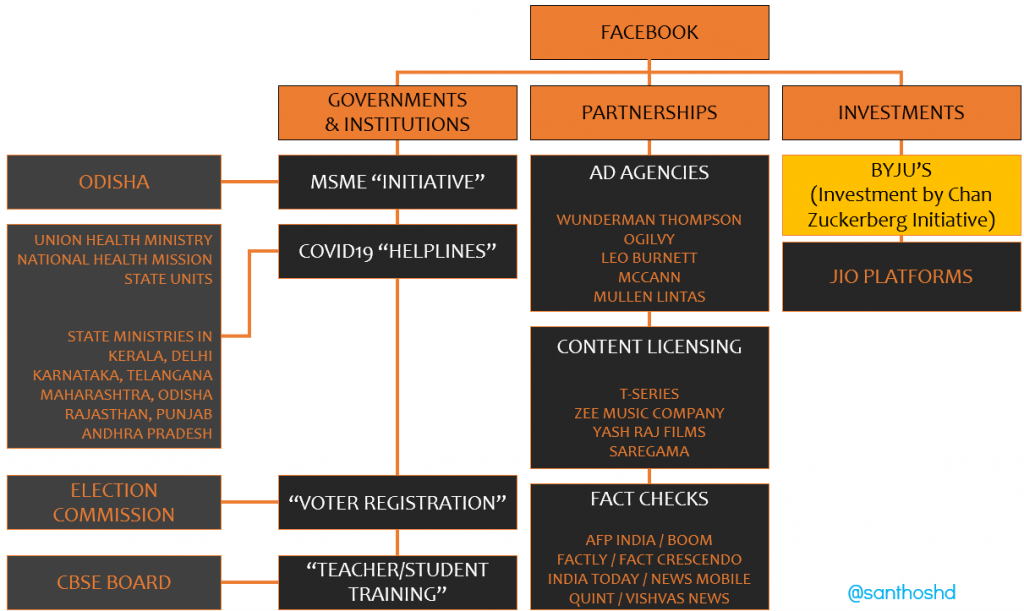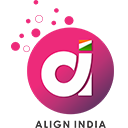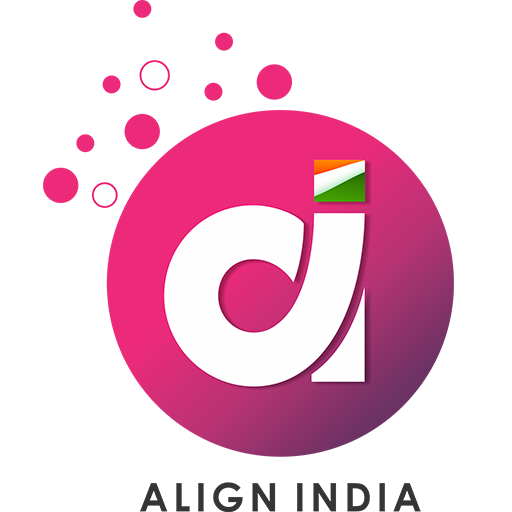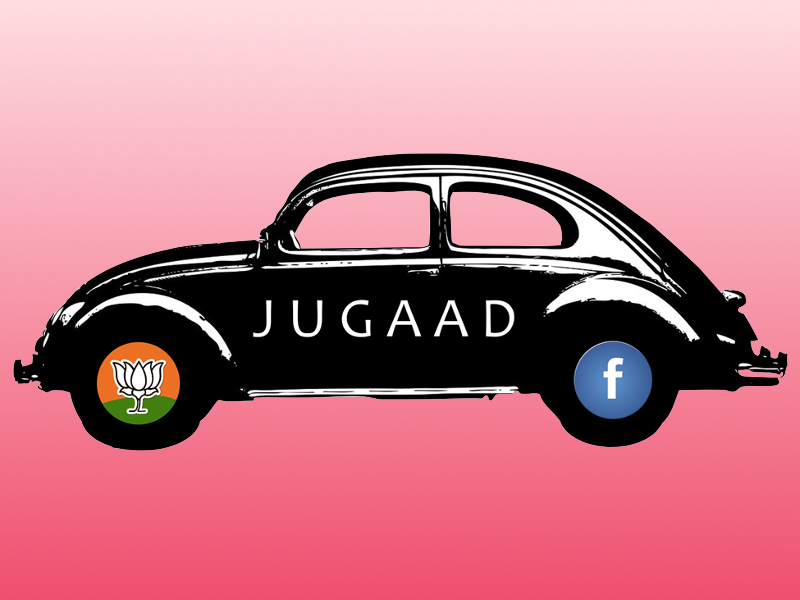By Santhosh D’Souza. First Published in Media Scanner
Facebook is constantly embroiled in controversy around the world – over the data it collects and its use, the selective application of its hate speech policies, its associations with political parties and governments, the exploitation of its platform to deliver targeted fake news and potentially influence electoral outcomes.
It was not surprising therefore when the Wall Street Journal (WSJ) published an article describing how Ankhi Das, the person in charge of Public Policy in India (she heads the function for India, South and Central Asia), allegedly intervened to prevent action from being taken on hate speech by politicians of the ruling BJP in India.
The platform has, in belated action, banned the controversial BJP politician, T Raja Singh – the person explicitly named in the WSJ article- in September 2020.
One quote from the article, if true, reveals how contingent Facebook’s success (in Das’ view) in India is on condoning BJP politicians’ hate and keeping Modi happy: “Ms. Das… told staff members that punishing violations by politicians from Modi’s party would damage the company’s business prospects in the country.” The WSJ article was soon followed by new revelations in it and in Time, providing further proof of Das’ personal political biases spilling over into her internal communications and describing the apparent disinterest of her colleague Shivnath Thukral (who also has personal connections to the BJP) in investigating Islamophobic hate speech. If reports are true, Facebook was already troubled enough to have an independent auditor – a law firm – evaluate the role of its platform in spreading hate speech and incitement in India.
Another article, this time in Indian media, outlined the attempts by BJP’s Social Media head, Amit Malviya, to get Facebook to delete anti-BJP pages and posts, claiming that they weren’t in line with expected standards”, to re-instate 17 pages deleted for hateful content (nearly all linked to the infamous Postcard News), and to entitle two Hindutva-linked publications – The Chaupal and OpIndia – to start receiving ad revenue in exchange for their content.
Narendra Modi, in particular, and the BJP in general seem enamoured of the potential of Facebook and WhatsApp as polarizing weapons in their electoral armoury. It is worth noting that this article appeared in an American publication. No Indian media entity has dared investigate the troubling links (stretching back to before the 2014 Lok Sabha elections) between Facebook employees and units on the one hand and the BJP on the other. The reason for this again is not surprising.
Ever since Modi came to power, Facebook India has been creating a network of initiatives, partnerships and investments across the Indian ecosystem, particularly in the media world. An article critical of Facebook and the BJP would count as two fatal strikes against the entity that publishes it.
There is of course absolutely nothing wrong with a company seeking to maximize its value to shareholders and consumers alike through alliances. Regulatory authorities should however examine the unbridled collection of private data through these initiatives and the potential of these partnerships/investments to solidify a monopolistic stranglehold over a billion digital users, across Facebook, WhatsApp and Instagram.
The illustration below summarizes what must surely be only a subset of Facebook India’s engagements with Governments, Central & State Institutions and Indian companies.

Facebook’s $5.7B investment in Jio Platforms is their gamble to leverage Indian consumers’ mobile transactions to monetize their WhatsApp purchase. A WhatsApp-based payment solution for JioMart customers has a chilling effect on other, Indian, solutions – not by cutting them off outright from Jio customers but by the simplicity of the integration between WhatsApp, the Jio subscription and JioMart.
Of course, it doesn’t hurt that Facebook can build on their own public policy connections by leveraging the unique access across India’s governments and policy-makers that the Jio parent possesses.
Another major investment in India was by the Chan Zuckerberg Initiative, a philanthropy owned by Mark Zuckerberg and his wife Priscilla Chan. In their first foray into Asia, they invested in BYJU’s in 2016.
Facebook India partnered with notable creative/advertising agencies on a “Thumbstoppers” initiative to promote mobile video advertisements in 2019. Apparently “it is the first initiative to be rolled-out as part of Facebook Creative Playground, a capability-enhancing program led by Facebook that is geared towards building the advertising ecosystem in India in partnership with leading creative agencies.” Facebook of course is seeking to attract advertising revenue to its platforms. Indian citizens should note the harm this causes to the fragile print medium – the erosion of their advertising revenues can signal the death of independent journalism as they become more and more dependent on Government advertising to survive.
At least eight Indian fact-checkers have been appointed by Facebook over the last two years. The revenue this fetches the former makes them disproportionately beholden to Facebook India, and there is the grave danger of manipulation of fact-checking processes in favour of the BJP, just like right wing pages and supporters were allegedly favoured in the USA.
Facebook signed licensing partnerships with T-Series Music, Zee Music Company and Yash Raj Films (and added Saregama to the list a year later), to allow users to include their copyrighted tracks in users’ posts and videos on Facebook and Instagram.
What is even more disconcerting are the many relationships Facebook India is cultivating within the Union and State governments, bureaucracies and autonomous institutions. The collaboration with the BJP seems to have begun even before the party began governing in 2014. The Wire reports that Facebook India, and specifically Ankhi Das, drafted a letter for Arun Jaitley, then in the Opposition, to use against intermediary rules being drafted in 2011 by the UPA government. Incredibly according to the same article, Facebook India is now being used to deliver training to Members of Parliament on the use of technology!
In July 2015, India’s Ministry of Women & Child Development launched the 100 Women Initiative, a contest open only on Facebook, to select 100 women achievers of India. Submissions were through videos posted to the Ministry’s Page. Facebook would have been pleased that no other social media platform was part of the program.
In 2017, the Odisha government allowed them to “monitor the growth of Micro, Small and Medium Enterprises after imparting training to 25000 entrepreneurs.” According to L N Gupta, the Additional Chief Secretary of the Odisha MSME Department, “Facebook will… take the email IDs and mobile numbers of entrepreneurs in all the workshops.”
During the COVID19 pandemic, Facebook India operated “WhatsApp helplines” for at least 11 state governments and “Facebook Messenger helplines” for nine. In the name of communications training, it connected with employees of the Union Health Ministry, state units of the National Health Mission & 9 State governments.
The Tribal Affairs Ministry launched Going Online as Leaders in July 2020 to “digitally empower” 5000 tribal youth by pairing them with “renowned people” as their mentors. The project uses video-based mechanisms such as Facebook Messenger and WhatsApp – only Facebook platforms will be used.
Facebook India partnered with the Election Commission for “voter registration” in October 2016 in UP, Punjab, Goa, Manipur and Uttarakhand. Seemingly uncaring about Facebook collecting data of Indians who registered through this, the Election Commission extended the initiative nation-wide in 2017.
Facebook India even tied up with the Central Board of Secondary Education for “curriculum and related training” in Augmented Reality, Digital Safety & Online Well-Being and introduced Instagram Toolkit for Teens. Who were the participants, and what did Facebook do with the identity data they collected from them?
All of this begs the question – is Facebook India being given free rein across the administrative and business fabric in the country in exchange for the alleged support it extends to the ruling BJP in fomenting hate and bigotry on the platform? As always, the Indian citizen and the Indian consumer loses heavily when big business and political agendas collude.
Disclaimer :The opinions expressed within this article are the personal opinions of the author. AlignIndia does not take any responsibility for the content of the article.
(Santhosh D’Souza combines professional interest in technology with a passion for science, history, mythology and current affairs. He tweets @santhoshd)


